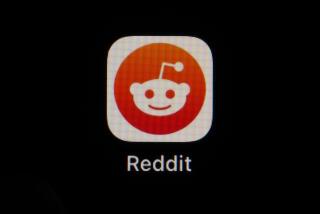NYSE Chairman Says Exchange Will Go Public by November
- Share via
In what could be one of the hottest new stock offerings of all time, the New York Stock Exchange plans to sell shares in itself to the public by November, its chairman said on Friday.
The stock plan, which has been rumored for weeks, still faces a number of hurdles. Nonetheless, the NYSE’s need to raise capital by selling shares reflects the burgeoning competition that is changing the face of stock trading around the world.
NYSE Chairman Richard Grasso, who as recently as March said a stock offering by the NYSE “couldn’t be further from reality,” on Friday told Bloomberg News: “I fully expect that you and I, at Thanksgiving, will be looking at the trading of a New York Stock Exchange stock.”
For the 207-year-old NYSE, now a not-for-profit organization owned by its member brokerages, going public would mean gaining greater access to capital needed to invest in technology--and specifically, to buy or develop new electronic trading networks that can afford investors lower trading costs and more efficient pricing.
The NYSE’s chief rival, the Nasdaq Stock Market, also is considering a stock offering. Stock exchanges in Australia and Sweden have gone public, but they are minor players.
The NYSE’s move is being driven in part by competition from about a dozen electronic trading networks, such as Instinet, that simply match stock orders (mostly for Nasdaq issues) from buyers and sellers--eliminating the role of a dealer or of an NYSE human “specialist.”
Although the NYSE is home to most of America’s major stocks, including IBM, General Electric and Exxon, it has long coveted many of Nasdaq’s actively traded tech stocks such as Intel and Microsoft.
What’s more, stock markets around the globe are actively discussing linkups that could allow seamless, 24-hour trading of stocks.
Grasso said he expects the NYSE to simultaneously sell stock in itself to the exchange’s 1,366 members and to the public. The NYSE board is likely Sept. 2 to approve the plans, he said.
At an NYSE meeting earlier this week, Grasso said Merrill Lynch & Co. would conduct an analysis of an NYSE stock offering. The Big Board hasn’t decided which firms would underwrite the deal.
Any public offering would require Securities and Exchange Commission approval.
And a major obstacle to an offering could be the Internal Revenue Service. The NYSE is requesting a ruling on whether members who swapped their seats for shares would be subject to capital gains tax.
If that were the case, the NYSE might scrap the idea of a public offering, a spokesman said.
More to Read
Inside the business of entertainment
The Wide Shot brings you news, analysis and insights on everything from streaming wars to production — and what it all means for the future.
You may occasionally receive promotional content from the Los Angeles Times.










